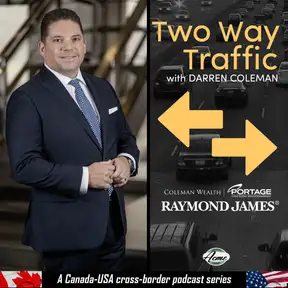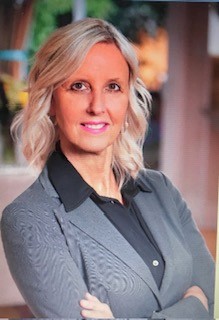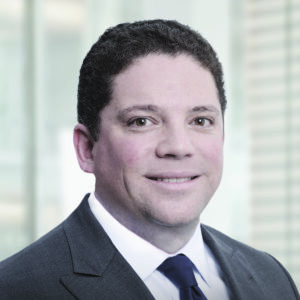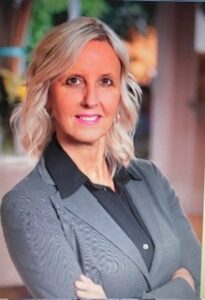 The following is an edited transcript of an interview conducted by financial advisor Darren Coleman of the Two Way Traffic podcast with eldercare expert Yvonne Dobronyi of YCD Consulting. It appeared on September 6th under the title ‘Planning for your parents and what it’s going to cost.’
The following is an edited transcript of an interview conducted by financial advisor Darren Coleman of the Two Way Traffic podcast with eldercare expert Yvonne Dobronyi of YCD Consulting. It appeared on September 6th under the title ‘Planning for your parents and what it’s going to cost.’
Click here for full link …
https://twowaytraffic.transistor.fm/episodes/planning-for-your-parents-and-what-it-s-going-to-cost
Coleman says the single biggest financial blind spot for families when planning for the future is the rising cost of eldercare and Yvonne Dobronyi agrees.
An eldercare consultant who counsels individuals and families through her firm, YCD Consulting, Yvonne says the monthly outlay for a retirement home starts at $3,600 for a single studio suite without care, but once in-home resources are included the tab can go up to $20,000 a month.
“Families are in denial and don’t want to ask difficult questions about moving Mom or Dad to assisted-living accommodation,” says Yvonne, who added that more than half the families she sees aren’t prepared for dealing with one, never mind two, elderly parents.
She says many seniors don’t understand they need to sell their home or cottage and sometimes both in order to afford retirement living if they have limited savings. And that seniors may have to work beyond their retirement years to maintain a cash flow to pay their bills even if they’re mortgage-free.
The two experts discussed a range of issues to do with eldercare:
- Who holds Power of Attorney for both property and healthcare, and what happens when one sibling has it and the other doesn’t?
- The importance of keeping these documents, along with a will, updated passport and medical records, in a designated file that’s readily accessible by a trusted contact.
- ‘Free’ (government-funded) resources like personal care and light housekeeping services are available after assessment if you qualify but only for 2-4 hours and when staff is available.
- Dealing with long wait lists for LTC (long-term care) homes, how to navigate the system, and making decisions during emotional stress.
Below is an edited transcript of the interview, focusing on the cost of eldercare housing services and families being prepared, or not prepared, for what can happen.
Darren Coleman
This is probably the single biggest blind spot most families have when they do their own planning. We can prepare for retirement, but this is where it tends to catch people off guard. I want to explore what life looks like when people suddenly have to figure out, how do I live independently for longer in my home, or what happens if I move into seniors’ housing.

Yvonne Dobronyi
Some families are well prepared, but more than half are not. They react to a situation, so all of a sudden you have a crisis. Mom has dementia and Dad’s been the caregiver and now Dad falls in the home and breaks his hip, so he has to go to hospital. Who’s going to manage Mom? That’s when families get together to figure out what sort of care is required. So some will go to hospital, and others try to manage Mom. My experience is that a lot of times they haven’t designated a power of attorney, completed a will or made funeral arrangements.
Darren Coleman
The reason I think most find they’re not prepared is that the timing of when people will need care is unknown. And people don’t know what these things cost.
Yvonne Dobronyi
Often, family members don’t know where they have an RRSP or GIC, or whether or not their home is sellable the way it is. It’s something that’s avoided because families are in denial and don’t want to ask difficult questions. But it’s our duty as family members to be well prepared and that might involve asking difficult questions.
Darren Coleman
Someone should take the lead in these things. It might be more of a formal meeting or a conversation with some structure to it.
Yvonne Dobronyi
Absolutely. You sit down and share information that will be kept confidential. And if something happens, family members are prepared and know what to do. But often this is not the case.
Darren Coleman
People may be dealing with these things while they’re in this emotional crisis. That’s not the best time to have that chat with your brother or sister about who’s going to look after Mom or Dad.
Yvonne Dobronyi
Very often a parent made a decision to give the power of attorney to one child and not the other two. Or two of them have the power of attorney and can’t agree on what the next steps might be. So one family member says we should move Mom and Dad into a retirement community or long-term care, and the other one says no.
Trusted contacts, Wills & Powers of Attorney
Darren Coleman
There’s a new administrative element for financial advisors in Canada now. It’s about adding a trusted contact to your file. So if people listening have not done this with their advisor, I recommend picking up the phone and saying I’d like to add that to my file. You mentioned the power of attorney and the will. We should point out there’s two kinds of power of attorney. Sometimes people will say, I have a will. Well, it doesn’t matter. The will only works once you’re gone, and the power of attorney is the document that works until you’re gone. So you need both of them.
Yvonne Dobronyi
The power of attorney is responsible for making decisions on behalf of that party in a healthcare capacity. Say the resident or patient has an extreme crisis situation and is now on life support. There needs to be that meeting to determine what is the best route. And that’s a difficult decision to make. I recommend you have more than one person be the power of attorney for care, so you can look at it closely and determine together what would be the best route.

Darren Coleman
Have you ever encountered a situation where the medical professionals weren’t sure who to listen to because one family member says one thing and one says another?
Yvonne Dobronyi
You have to make a decision promptly but the doctors are very matter of fact and that does help the family. I had a situation where a family member was provided with news that was not nice and had to make decisions. It’s almost like a buffer or comfort to have another family member you can rely on.
Darren Coleman
One of the things that surprises people is what these things cost.
Free in-home care services are limited
Yvonne Dobronyi
A lot of services are available for in-home care. That includes personal care, as well as light housekeeping. It can become quite costly. The resources that are free are a limited amount of hours per day and per week. I think the maximum hours you can have free is four if you’ve had something traumatic happen or a serious injury. A lot of families want to keep their parents as independent as they can for as long as they can, which I understand. The parent feels comfortable in the home, but often resists people coming in to help them, particularly if they have dementia. I have an acquaintance who’s 92 and he has a wife with fairly advanced dementia. We provided support to him, but she would not let a person in. We had to go through a lot of caregivers before she would be receptive to an individual.
Darren Coleman
Much can be provided if people can afford it, but you may have a nurse or someone to come in to cook or clean or help with basic toileting. There could be someone to come in and just sit with you so you’re not lonely.
Yvonne Dobronyi
Retirement home communities may offer respite services so they can take the resident and the caregiver, usually a family member, can have a rest. Most homes will offer 30 to 60 days, and then they have to decide whether they’d like to transition full-time into that retirement community. It’s a great way of introducing the services to someone who has always lived at home, because they’re afraid they’ll lose their independence, and once they get to the retirement community they realize people are treating them well.
Darren Coleman
There’s this range of services and one you advocate is for quality of life.
Resources to live holistically
Yvonne Dobronyi
People are more in tune now about resources to help them live holistically. Why can’t we have a naturopathic store in long-term care homes or retirement homes? We could have a cart with holistic oils and non-conventional medical methods that make the person feel safe and relaxed.
Darren Coleman
I think the real trick, though, is families don’t know any of these things. So how do people begin to learn what the range of services and options and costs are?
Yvonne Dobronyi
That’s a great question. It comes from a variety of different sources, but my services provide that sort of insight, and other service providers assist with placement of the resident. We can line up different tours depending on what the needs are and what the wants are from the families. We tour those homes together but you have to go in-person versus online. People feel overwhelmed when they’re Googling because there’s so many options and they don’t know where to start. I would be happy to help anyone.
Darren Coleman
Take us through what costs can look like.
Retirement Homes vs Nursing Homes
Yvonne Dobronyi
Retirement homes are private pays and are more costly, and nursing homes are government-subsidized. There’s a difference. The nursing home will include all the care, and typically you need an assessment through a government body to assess the resident and determine what level of care they need. You have different levels of costs, but on average the minimum you’d pay is about $3,600 for a studio suite. That’s not a one-bedroom. It’s smaller than a one-bedroom and without any care.
Darren Coleman
So we’re talking $45,000 a year after tax just for a studio suite, but with no one helping you?
Yvonne Dobronyi
Yes. And this would be challenging for family members and the resident. How are they going to manage if their rent or mortgage was $2,400? How are they going to manage those costs without selling furniture and housing, so I think that’s a challenge.
Darren Coleman
Let’s go back to the first option. Let’s say we go the nursing home route, where it’s government paid. Are there lots of those beds?
Yvonne Dobronyi
There are wait lists.
Darren Coleman
So you should probably put your name on one. But just because those facilities exist doesn’t mean you’re going to get one.
Wait lists: Try for 5 different choices
Yvonne Dobronyi
No. You can put your name on a list. And typically we encourage you to have five different buildings, five different choices. That way, if one comes up, or you need a crisis bed, and one happens to be open, then you can be placed in the bed. However, what often happens is families are intimidated. They’re afraid to put their parent on a list, because then they get a call and have to decide in 24 hours. What happens is they say no and they go back to the bottom of the list.
Darren Coleman
Is there a standard level of care?
Yvonne Dobronyi
There’s independent living where there’s very little care required, but then they would have a la carte services you can pick from. And then you have mid-tier, where they offer some services a la carte, or they have bundled services, which can include a daily or weekly bath. They put this together for a bundled rate. And there are dementia care units, or secure units if someone is wandering, and those can be costly. One resident I worked with had advanced dementia and that cost up to $20,000 per month.
The huge cost of Dementia Care
Darren Coleman
We’ve had that happen with some of our clients, and we have to send the money to the nursing home. It’s not uncommon to see $20,000 or $30,000 or $40,000 a month to provide the level of care and support. The cost of this can be shocking.
Yvonne Dobronyi
It depends on the home you choose. Some are higher-end living, and some are mid-tier. It depends on your budget.
Darren Coleman
Having a family conversation before anybody gets sick is our advice to people. But there can be a checklist. You have your will and power of attorney but it’s no good if you don’t know where it is.
Yvonne Dobronyi
Especially in a crisis situation, or when someone’s in need and they’re not in the same country and you need a passport to travel. People often let their passports expire because they haven’t thought of travelling for years. It’s important that families know where they’re storing the will. I have a little box in my closet and everyone in my family knows where it is. I have it labelled as well.
Darren Coleman
This is where people can benefit from professional guidance from people who’ve done this before. Have you found that people are maybe not in their best frame of mind when this happens?
There are times where there’s a lot of disagreeing or feelings have been hurt. I know one family where they have three sisters. Two sisters are getting an inheritance. One sister was left out. So now the one sister doesn’t speak to the other two. But if they had a conversation, all three of them, with their parents, maybe that would have made things easier. I love your suggestion about a checklist. Typically I will do a checklist if someone is looking for a retirement home or nursing home, and that way I know I’m checking off all the little boxes.
Darren Coleman
Is that something you would take people through? The idea of a circle of care?
Yvonne Dobronyi
Through Covid I was in buildings every single day to support all the staff and the residents, and I was all PPE’ed up with face shields and everything. But I found that mental health declined. Service providers were canceling. They were afraid of coming into a place. I had one family where the daughter visited her Mom during Covid and realized Mom put the iron in the freezer. Had she not gone and visited, she wouldn’t have known. It turned out her mother had Alzheimer’s. It was a real shock for the daughter.
Disclaimer:
Here’s the Raymond James disclaimer on Two-way Traffic:
The opinions expressed on two way traffic are those of Darren Coleman and are for general information purposes only. It does not constitute any legally binding engagement between the podcasters and anyone else. Always check with your advisors to obtain your own tax or investment advice. welcome to two way traffic with Darren Coleman of Portage cross border Wealth Management. In this series, Darren aims to guide you through the complexities, complications, implications, and most importantly, the advantages of having money and family on both sides of the border.


